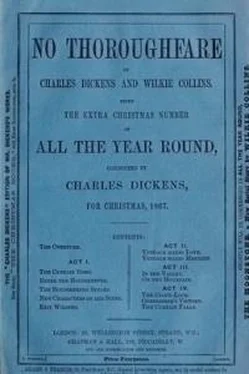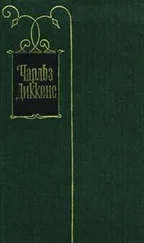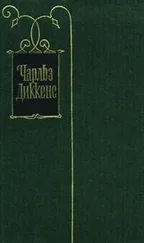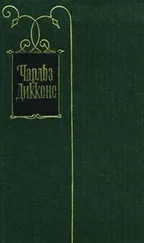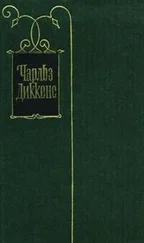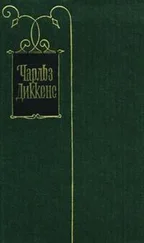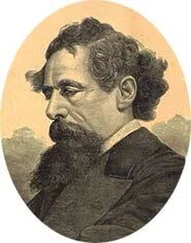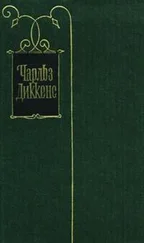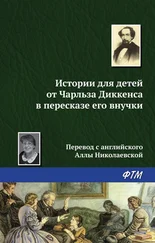Чарльз Диккенс - No Thoroughfare
Здесь есть возможность читать онлайн «Чарльз Диккенс - No Thoroughfare» весь текст электронной книги совершенно бесплатно (целиком полную версию без сокращений). В некоторых случаях можно слушать аудио, скачать через торрент в формате fb2 и присутствует краткое содержание. Год выпуска: 2014, Издательство: epubBooks Classics, Жанр: Классическая проза, на английском языке. Описание произведения, (предисловие) а так же отзывы посетителей доступны на портале библиотеки ЛибКат.
- Название:No Thoroughfare
- Автор:
- Издательство:epubBooks Classics
- Жанр:
- Год:2014
- ISBN:нет данных
- Рейтинг книги:5 / 5. Голосов: 1
-
Избранное:Добавить в избранное
- Отзывы:
-
Ваша оценка:
- 100
- 1
- 2
- 3
- 4
- 5
No Thoroughfare: краткое содержание, описание и аннотация
Предлагаем к чтению аннотацию, описание, краткое содержание или предисловие (зависит от того, что написал сам автор книги «No Thoroughfare»). Если вы не нашли необходимую информацию о книге — напишите в комментариях, мы постараемся отыскать её.
No Thoroughfare — читать онлайн бесплатно полную книгу (весь текст) целиком
Ниже представлен текст книги, разбитый по страницам. Система сохранения места последней прочитанной страницы, позволяет с удобством читать онлайн бесплатно книгу «No Thoroughfare», без необходимости каждый раз заново искать на чём Вы остановились. Поставьте закладку, и сможете в любой момент перейти на страницу, на которой закончили чтение.
Интервал:
Закладка:
"He was saying down–stairs, Miss Obenreizer," observed Vendale, "that the world is so small a place, that people cannot escape one another. I have found it much too large for me since I saw you last."
"Have you travelled so far, then?" she inquired.
"Not so far, for I have only gone back to Switzerland each year; but I could have wished—and indeed I have wished very often—that the little world did not afford such opportunities for long escapes as it does. If it had been less, I might have found my follow–travellers sooner, you know."
The pretty Marguerite coloured, and very slightly glanced in the direction of Madame Dor.
"You find us at length, Mr. Vendale. Perhaps you may lose us again."
"I trust not. The curious coincidence that has enabled me to find you, encourages me to hope not."
"What is that coincidence, sir, if you please?" A dainty little native touch in this turn of speech, and in its tone, made it perfectly captivating, thought George Vendale, when again he noticed an instantaneous glance towards Madame Dor. A caution seemed to be conveyed in it, rapid flash though it was; so he quietly took heed of Madame Dor from that time forth.
"It is that I happen to have become a partner in a House of business in London, to which Mr. Obenreizer happens this very day to be expressly recommended: and that, too, by another house of business in Switzerland, in which (as it turns out) we both have a commercial interest. He has not told you?"
"Ah!" cried Obenreizer, striking in, filmless. "No. I had not told Miss Marguerite. The world is so small and so monotonous that a surprise is worth having in such a little jog–trot place. It is as he tells you, Miss Marguerite. He, of so fine a family, and so proudly bred, has condescended to trade. To trade! Like us poor peasants who have risen from ditches!"
A cloud crept over the fair brow, and she cast down her eyes.
"Why, it is good for trade!" pursued Obenreizer, enthusiastically. "It ennobles trade! It is the misfortune of trade, it is its vulgarity, that any low people—for example, we poor peasants—may take to it and climb by it. See you, my dear Vendale!" He spoke with great energy. "The father of Miss Marguerite, my eldest half–brother, more than two times your age or mine, if living now, wandered without shoes, almost without rags, from that wretched Pass—wandered—wandered—got to be fed with the mules and dogs at an Inn in the main valley far away—got to be Boy there—got to be Ostler—got to be Waiter—got to be Cook—got to be Landlord. As Landlord, he took me (could he take the idiot beggar his brother, or the spinning monstrosity his sister?) to put as pupil to the famous watchmaker, his neighbour and friend. His wife dies when Miss Marguerite is born. What is his will, and what are his words to me, when he dies, she being between girl and woman? 'All for Marguerite, except so much by the year for you. You are young, but I make her your ward, for you were of the obscurest and the poorest peasantry, and so was I, and so was her mother; we were abject peasants all, and you will remember it.' The thing is equally true of most of my countrymen, now in trade in this your London quarter of Soho. Peasants once; low–born drudging Swiss Peasants. Then how good and great for trade:" here, from having been warm, he became playfully jubilant, and touched the young wine–merchant's elbows again with his light embrace: "to be exalted by gentlemen."
"I do not think so," said Marguerite, with a flushed cheek, and a look away from the visitor, that was almost defiant. "I think it is as much exalted by us peasants."
"Fie, fie, Miss Marguerite," said Obenreizer. "You speak in proud England."
"I speak in proud earnest," she answered, quietly resuming her work, "and I am not English, but a Swiss peasant's daughter."
There was a dismissal of the subject in her words, which Vendale could not contend against. He only said in an earnest manner, "I most heartily agree with you, Miss Obenreizer, and I have already said so, as Mr. Obenreizer will bear witness," which he by no means did, "in this house."
Now, Vendale's eyes were quick eyes, and sharply watching Madame Dor by times, noted something in the broad back view of that lady. There was considerable pantomimic expression in her glove–cleaning. It had been very softly done when he spoke with Marguerite, or it had altogether stopped, like the action of a listener. When Obenreizer's peasant–speech came to an end, she rubbed most vigorously, as if applauding it. And once or twice, as the glove (which she always held before her a little above her face) turned in the air, or as this finger went down, or that went up, he even fancied that it made some telegraphic communication to Obenreizer: whose back was certainly never turned upon it, though he did not seem at all to heed it.
Vendale observed too, that in Marguerite's dismissal of the subject twice forced upon him to his misrepresentation, there was an indignant treatment of her guardian which she tried to cheek: as though she would have flamed out against him, but for the influence of fear. He also observed—though this was not much—that he never advanced within the distance of her at which he first placed himself: as though there were limits fixed between them. Neither had he ever spoken of her without the prefix "Miss," though whenever he uttered it, it was with the faintest trace of an air of mockery. And now it occurred to Vendale for the first time that something curious in the man, which he had never before been able to define, was definable as a certain subtle essence of mockery that eluded touch or analysis. He felt convinced that Marguerite was in some sort a prisoner as to her freewill—though she held her own against those two combined, by the force of her character, which was nevertheless inadequate to her release. To feel convinced of this, was not to feel less disposed to love her than he had always been. In a word, he was desperately in love with her, and thoroughly determined to pursue the opportunity which had opened at last.
For the present, he merely touched upon the pleasure that Wilding and Co. would soon have in entreating Miss Obenreizer to honour their establishment with her presence—a curious old place, though a bachelor house withal—and so did not protract his visit beyond such a visit's ordinary length. Going down–stairs, conducted by his host, he found the Obenreizer counting–house at the back of the entrance–hall, and several shabby men in outlandish garments hanging about, whom Obenreizer put aside that he might pass, with a few words in patois .
"Countrymen," he explained, as he attended Vendale to the door. "Poor compatriots. Grateful and attached, like dogs! Good–bye. To meet again. So glad!"
Two more light touches on his elbows dismissed him into the street.
Sweet Marguerite at her frame, and Madame Dor's broad back at her telegraph, floated before him to Cripple Corner. On his arrival there, Wilding was closeted with Bintrey. The cellar doors happening to be open, Vendale lighted a candle in a cleft stick, and went down for a cellarous stroll. Graceful Marguerite floated before him faithfully, but Madame Dor's broad back remained outside.
The vaults were very spacious, and very old. There had been a stone crypt down there, when bygones were not bygones; some said, part of a monkish refectory; some said, of a chapel; some said, of a Pagan temple. It was all one now. Let who would make what he liked of a crumbled pillar and a broken arch or so. Old Time had made what he liked of it, and was quite indifferent to contradiction.
The close air, the musty smell, and the thunderous rumbling in the streets above, as being, out of the routine of ordinary life, went well enough with the picture of pretty Marguerite holding her own against those two. So Vendale went on until, at a turning in the vaults, he saw a light like the light he carried.
Читать дальшеИнтервал:
Закладка:
Похожие книги на «No Thoroughfare»
Представляем Вашему вниманию похожие книги на «No Thoroughfare» списком для выбора. Мы отобрали схожую по названию и смыслу литературу в надежде предоставить читателям больше вариантов отыскать новые, интересные, ещё непрочитанные произведения.
Обсуждение, отзывы о книге «No Thoroughfare» и просто собственные мнения читателей. Оставьте ваши комментарии, напишите, что Вы думаете о произведении, его смысле или главных героях. Укажите что конкретно понравилось, а что нет, и почему Вы так считаете.
